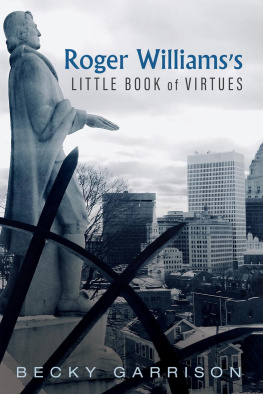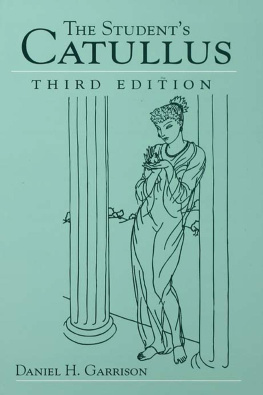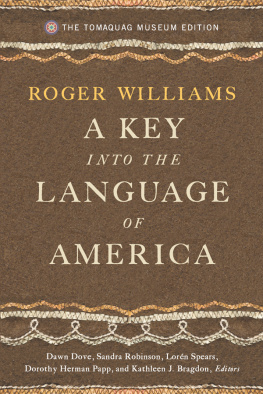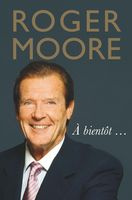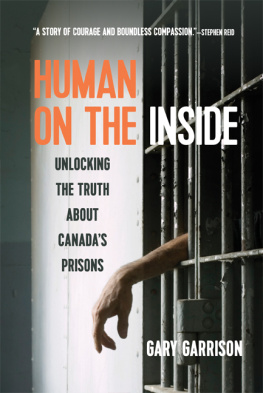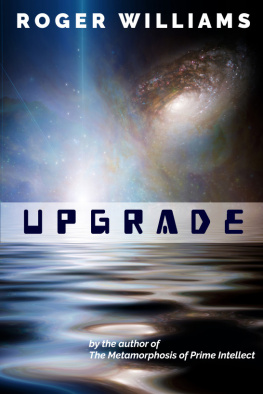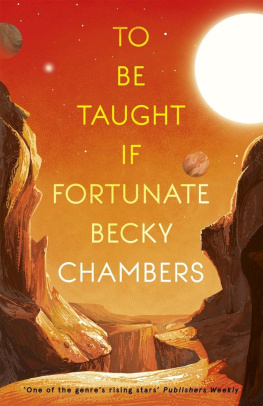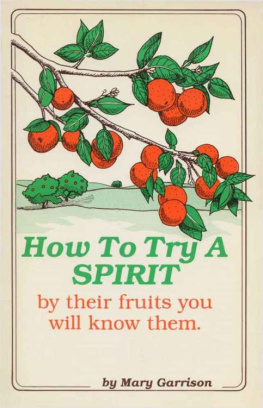Illustrations
Oldest continuous th of July parade, Bristol, RI |
Are Trump and the Church in Bed Together? |
Tell the Difference |
Rogers final resting place in Providence, RI |
Pulpit Rock: On this rock Roger Williams preached to the Indian inhabitants of Prudence Island |
Prudence Island, RI at Sunset |
Paper mch statue of Roger ( 1960 ) |
Are Smart Women Evil? |
Not Going in There with All Those Homosexuals! |
Warning... God will judge you |
Bullet Cross |
What to Wear |
Creation meets Evolution |
Reclaiming Roger
[The merger of church and state remains] opposite to the souls of all men who by persecutions are ravished into a dissembled worship which their hearts embrace not.
Roger Williams
Williams is an inconvenient figure for todays religious right, which asserts that the only purpose of the wall of separation was to protect religion from governmentnot government from religion. That was true in early colonial America, but the other side of the equation was well understood by the time the Constitutionwhich never mentions God and explicitly bars all religious tests for public officewas written. Destructive religious wars in th -century Europe, among other factors, had led many Americans to the realization that governments could indeed be threatened by a close identification with religion.
Susan Jacoby
Religion easily has the greatest bullshit story ever told.
George Carlin
Oldest continuous th of July parade, Bristol, RI
I n the 2016 United States presidential election, percent of white evangelicals voted for a TV reality star even though he seems to be a malignant narcissist and a sociopath. Once he exits the stage, I predict white evangelicals will continue to seek out those political candidates who will support the godawful agenda advanced by his administration.
Why is the current occupant in the White House supported by a triumvirate of right wing ChristianityAmerican evangelicalism, the prosperity gospel, and white nationalist pride? What in Gods name is going on?
Prior to the elevation of Trump by the majority of white evangelicals, I grew tired of satirizing this God-game, and moved on to covering other topics such as the craft culture and secular spiritualities I discovered upon moving to the Pacific Northwest. But the 2016 election stirred within me the bones of my ancestor Roger Williams. Just as he spoke out against injustices fueled by politicized religiosity, I realize I am called to do likewise.
At a crisis when the public mind, in this and other countries, is so strongly excited on questions of civil and religious liberty, the great principle advocated by Williamsthat civil rulers have no authority to prescribe, enjoin, or regulate religious beliefsdemands the most serious consideration of every church and of every government.
Romeo Elton , Life of Roger Williams ( 1862 )
To paraphrase folk icon Bob Dylanare the times a-changin? Eltons reflections, penned over years ago in reference to this seventeenth-century pioneer of religious freedom, could easily apply to contemporary debates over the role of religion in the public square.
The philosopher George Santayana wrote, Those who cannot remember the past are condemned to repeat it.
As Rogers direct descendant, I would like to explore what we can learn from my ancestors life and legacy that can help us navigate through this current sociopolitical crisis. How did Roger manage to endure the trials of his life, and leave a legacy of liberty that echoes now throughout the world?
This isnt a Farmers Almanac -y guidebook that serves up quotes from the past to help guide us through our contemporary problems. I want to explore how Roger lived a virtuous life with an eye towards what we can glean from his actions to help us get out of this twenty-first century religious morass.
For those who think this rise of the religious right represents a new trend in Americana Christianity, history shows otherwise. The mantra of Trumps white evangelical supporters, that America should shine forth as an exemplar of the Christian faith, is at least as old as the original thirteen colonies, as when the first Governor of the Massachusetts Bay Colony, John Winthrop, wrote the famous phrase, a city upon a hill. Far too many of them, however, believe that having faith means that God is on their sideand that therefore, everything they do is right.
In Smithsonian magazine, Kenneth C. Davis debunks the commonly held belief that the Pilgrims and Puritans came to America in search of authentic religious freedom where everyone could be free to worship as they please. From the earliest arrival of Europeans on Americas shores, religion has often been a cudgel, used to discriminate, suppress and even kill the foreign, the heretic and the unbelieverincluding the heathen natives already here.
Davis delineates the infighting amongst Christian factions within the individual colonies. Moreover, while it is true that the vast majority of early-generation Americans were Christian, the pitched battles between various Protestant sects and, more explosively, between Protestants and Catholics, present an unavoidable contradiction to the widely held notion that America is a Christian nation. The notion of a unified Christian nation promoted by the religious right remains a fantasy. And all of the above is a betrayal of Christianitys peaceful ideals.
The language of religion used to justify secular power is of course not a new dynamic. What was arguably new was that a colony might aspire to become the embodiment of the New Israel, in the language of the timesan attempt to live up to the highest ideals of Christianity as the colonists understood them. And they each understood them differently.
This is perhaps most obvious in the Puritans under Winthrop. His appropriation of the language of Gods chosen people, his repurposing of the scriptural text for the New Englanders own circumstances, his reading of Gods providential hand in every detail of their venture, his confidence that he could pierce the analogies between modern and biblical time: these were all audacious acts. Roger Williams quailed at the hubris. That principle is now part of the fabric of the modern United States, as well as many countries around the world. Even now, however, the kind of thinking Winthrop used remains prevalent among those who wish to impart their particular brand of religion onto the rest of the world.



